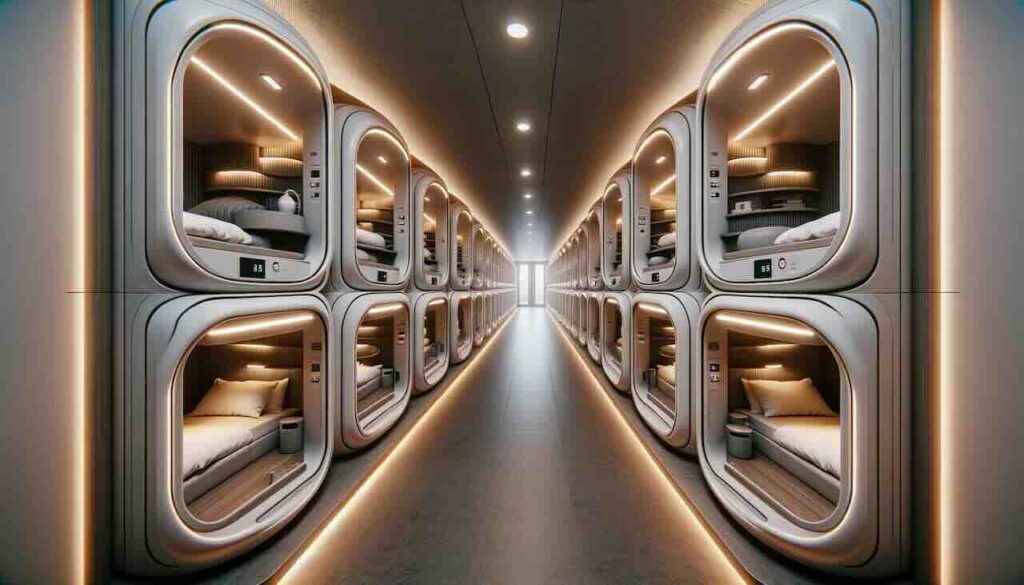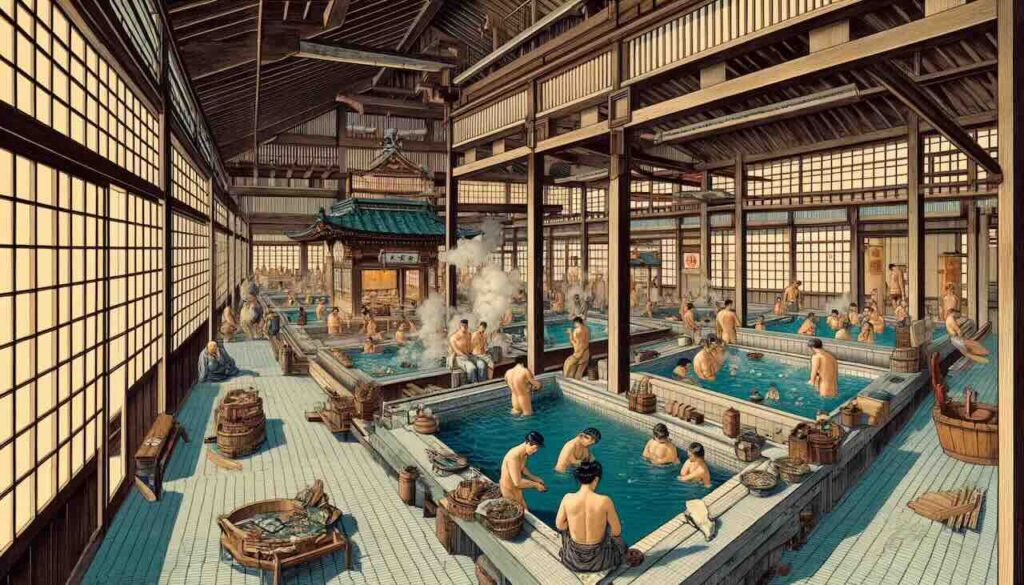If you’ve ever visited Japan or browsed travel blogs, you’ve likely come across one of the country’s most intriguing and innovative accommodation styles: the capsule hotel. Compact yet surprisingly comfortable, these uniquely Japanese spaces have captivated travelers from around the world.
But where did this unusual concept originate, and why does it continue to evolve and fascinate? Let’s explore the birth, philosophy, and enduring charm of Japan’s capsule hotels — including what makes them distinctly Japanese.
- The Origins of Capsule Hotels: Urban Innovation Meets Design
- The Essence of Capsule Hotels: The Pursuit of Efficiency
- The Distinctly Japanese Character of Capsule Hotels
- The Evolution of Capsule Hotels: Expanding Beyond “Budget”
- Why Capsule Hotels Matter: A Reflection of Japanese Innovation
- Summary: The Enduring Allure of Capsule Hotels
The Origins of Capsule Hotels: Urban Innovation Meets Design
The Birth of the “Capsule” Concept
The world’s first capsule hotel, Capsule Inn Osaka, opened in 1979 in Osaka’s bustling Umeda district. The concept was the brainchild of visionary Japanese architect Kisho Kurokawa, one of the founding figures of Japan’s Metabolist architecture movement — a school of thought that focused on flexible, modular design in response to rapid urbanization.
At the time, Japan’s post-war economic boom had created severe land shortages and rising housing costs in major cities. Kurokawa recognized the need for an ultra-efficient lodging solution that could offer:
- Minimal private space for sleeping
- Shared, functional public facilities
- Maximum use of limited urban land
Metabolism in Practice
Kurokawa’s capsule design was a natural extension of Metabolist principles:
- Prefabricated modular sleeping pods, stacked horizontally and vertically.
- A highly efficient, scalable design adaptable to the dense cores of Japanese cities.
- An early example of architecture responding creatively to the pressures of modern urban life.
The Essence of Capsule Hotels: The Pursuit of Efficiency
At the heart of the capsule hotel is a relentless focus on “ultimate efficiency” — a value deeply ingrained in both Japanese design and social philosophy.
Inside the Capsule
- Each pod contains only the bare essentials:
- A bed
- Personal lighting
- Power outlets
- A small television
- Ventilation controls
- Space is maximized vertically, allowing dozens (sometimes hundreds) of guests to sleep comfortably in a footprint that would house only a fraction of that number in a traditional hotel.
Shared Facilities
- Bathrooms, showers, saunas, lounges, and locker rooms are communal, allowing more efficient use of infrastructure.
- Automated check-in systems and minimal staffing needs keep operational costs low.
This model allows capsule hotels to offer affordable prices, even in the most expensive city centers like Tokyo, Osaka, and Kyoto — making them extremely attractive to:
- Business travelers
- Solo tourists
- Budget-conscious backpackers
The Distinctly Japanese Character of Capsule Hotels
While their efficiency is universal, capsule hotels reflect uniquely Japanese cultural values in several ways:
1. Space Maximization
- The intelligent use of small spaces echoes the compact design principles seen in traditional Japanese architecture, where sliding doors (shoji), tatami rooms, and multi-functional spaces maximize utility.
2. Cleanliness and Order
- Shared spaces are meticulously clean and well-maintained, embodying Japan’s social emphasis on consideration for others and attention to detail.
3. Omotenashi: Japanese Hospitality
- Despite their minimalism, capsule hotels still practice omotenashi (おもてなし) — the Japanese spirit of warm, thoughtful service.
- Many provide:
- Comfortable bedding
- Well-stocked toiletries
- Quiet sleeping environments
- High-speed Wi-Fi
- Even optional traditional Japanese breakfasts
During my first stay at a capsule hotel, I was surprised by how comfortable and private the pod felt. Though compact, every detail — from the lighting to the bedding — was carefully designed for relaxation.
The Evolution of Capsule Hotels: Expanding Beyond “Budget”
In recent years, capsule hotels have undergone a remarkable transformation:
1. Luxury Capsule Hotels
- Some newer capsule hotels now emphasize design, comfort, and aesthetic appeal.
- Features may include:
- Premium bedding
- Mood lighting
- Private workspaces
- High-end lounges and libraries
2. Catering to Diverse Travelers
- Many facilities offer:
- Women-only floors for added privacy and security.
- Soundproof pods for better rest.
- Shared coworking spaces for digital nomads.
3. Global Expansion
- The capsule hotel model has inspired similar ventures worldwide, though Japan remains the gold standard in both design quality and cultural experience.
Why Capsule Hotels Matter: A Reflection of Japanese Innovation
Beyond affordability or novelty, capsule hotels represent a uniquely Japanese response to complex modern challenges:
- Urban density: Maximizing limited real estate.
- Efficiency and order: Streamlined operations benefiting both guests and staff.
- Minimalism: Prioritizing essentials while delivering comfort.
- Cultural adaptability: Continually evolving to meet changing traveler needs.
Summary: The Enduring Allure of Capsule Hotels
Capsule hotels are much more than small rooms — they are a shining example of Japanese ingenuity, cultural sensitivity, and adaptive design. What began as a solution to an urban problem has evolved into one of Japan’s most internationally recognized travel experiences.
If you haven’t stayed in a capsule hotel yet, it’s an experience well worth trying. Not only will you enjoy an affordable night’s rest, but you’ll also step into a uniquely Japanese space where minimalist architecture, hospitality, and efficiency combine in harmony.
Capsule hotels: where tradition, innovation, and urban living meet.


